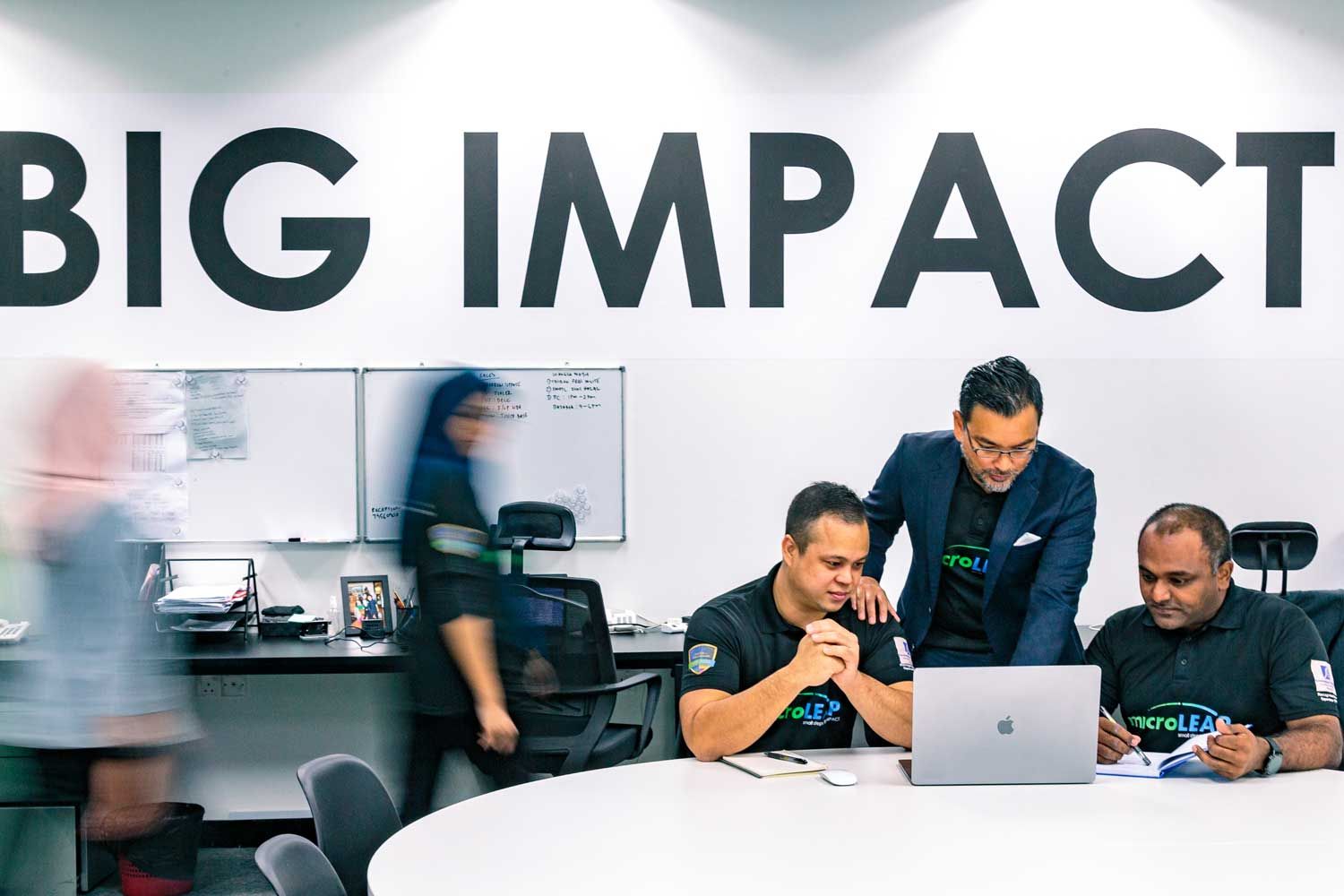The fintech-savvy founder of micro-financing platform MicroLeap aims to democratise the intimidating investment process for the average Malaysian—while making a positive impact on B40 businesses
"There was this pisang goreng seller in Johor who has been operating for over 30 years," begins Tunku Danny Nasaifuddin Mudzaffar. "She went to a bank to apply for a loan and her application was declined. And the reason she was declined was because she was only registered with the Companies Commission Of Malaysia (Suruhanjaya Syarikat Malaysia or SSM) for two years at the time she applied."
According to Tunku Danny, most banks would typically only consider enterprises that have been registered with SSM for at least three years. "So this was a stall that was making a profit but declined for a loan based on a technicality."
Thankfully, the stall owner's story didn't end there as she eventually found an alternative source of funding in MicroLeap, a peer-to-peer (P2P) micro-financing platform headed by Tunku Danny, a former banker. "Within two weeks, she raised RM40,000, which she used to renovate her stall. She's doing really well today," he adds.
Related: 3 CEOs On The Future Of Fintech In Malaysia Post-CMCO

The son of royal couple Tunku Dara Tunku Tan Sri Naquiah and Tunku Datuk Mudzaffar Tunku Mustapha, the low-key Tunku Danny combines his keen interest in fintech with a desire to impact businesses underserved by conventional banks, namely 'micro' enterprises run by B40 business owners.
From sundry shop owners to roadside stalls selling kuih-muih and other street foods, these are mom-and-pop businesses that are a familiar fixture in Malaysia—and the very demographic that MicroLeap aims to support.
Launched in October 2019, MicroLeap has already helped over 70 micro businesses acquire much-needed funds via a crowd-funding model. Regulated by the Securities Commission, MicroLeap connects micro entrepreneurs with investors who can contribute as little as RM50 on the platform. Investors, meanwhile, can view the applicants who are in need of funds on MicroLeap, or refer to the proprietary credit algorithm to help them select a business with a credit risk score that best suits their investment preferences.




